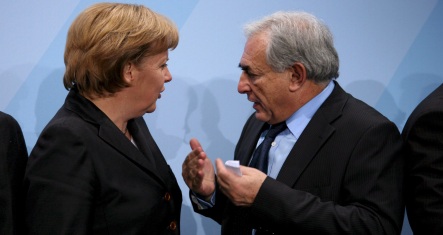“It would be helpful if the German government, whose reluctance I fully understand, were able to take another step” and adopt more measures to help the economy, the head of the Washington-based International Monetary Fund told Germany’s ZDF television.
Such measures “make all the more sense when they are taken by all sides at the same time,” Strauss-Kahn said, referring to German Chancellor Angela Merkel’s wait-and-see attitude at a time when other European governments have laid out plans to kick-start their own economies.
Berlin has already laid out a package worth €31 billion to fight the crisis, but Merkel has been accused of timidity, or worse, in delaying further possible measures for fear of increasing deficit spending.
Merkel told business leaders on Tuesday they could expect a firm response from her government early next year. “We will take action again in January — another few billion could come together,” she told them amid press reports suggesting Berlin would invest up to €30 billion ($42 billion) more to drag the economy out of its slump.
But Merkel has also said that any new aid package would only be unveiled after US President-elect Barack Obama has taken office on January 20 and put forward similar measures.
Strauss-Kahn said it was likely European economies would experience negative growth of one to two percentage points next year, while warning that “the economic consequences will be truly hard for the little guy”.



 Please whitelist us to continue reading.
Please whitelist us to continue reading.